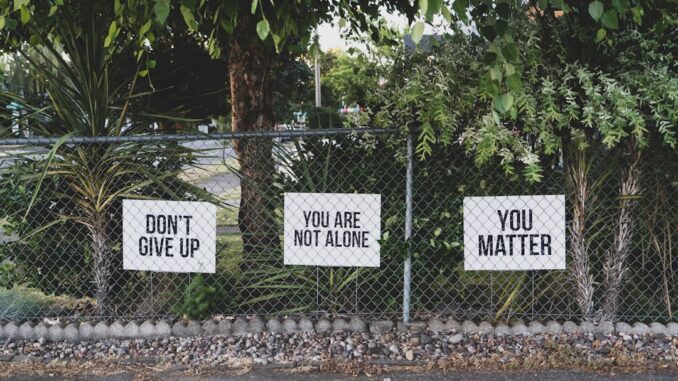
Embarking on the journey to recovery is both courageous and challenging. One of the most effective ways to navigate this path is by surrounding yourself with a supportive community. But how do you find and join such groups? Let’s explore some actionable steps to help you build a network that fosters your sobriety and personal growth.
1. Attend Regular Meetings
Consistency is key. Regularly attending recovery meetings, whether they’re 12-step programs like Alcoholics Anonymous (AA) or other support groups, helps you establish trust and form relationships with others who share your goals. For instance, making it a habit to attend meetings at the same time and place each week can help you get to know others and be recognized as a reliable member of the community. (valleyhope.org)
2. Participate Actively
Engagement is crucial. Actively participating in discussions, sharing your experiences, and offering support to others can deepen your connections. The more involved you are, the more you’ll contribute to the group dynamic and build meaningful relationships. Remember, practice active listening and empathy. By showing genuine interest in others’ stories, you create a reciprocal environment where connections can flourish. (valleyhope.org)
3. Seek Out Mentorship
Mentorship can provide invaluable support and guidance in your recovery journey. Seek out a mentor or sponsor who has experience and can offer wisdom, encouragement, and accountability. This relationship can be a cornerstone of your recovery network. Be open to offering mentorship as well. Sharing your own experiences and supporting others can strengthen your own recovery and expand your network. (valleyhope.org)
4. Volunteer and Give Back
Volunteering for recovery-related events or initiatives not only supports the community but also provides opportunities to meet like-minded individuals. Giving back creates a sense of purpose and can help you connect with others who are committed to the same cause. Look for volunteer opportunities that align with your interests and strengths. Whether it’s organizing events, participating in community outreach, or providing support to newcomers, your contributions will enhance your connections. (valleyhope.org)
5. Join Specialized Groups
Recovery communities often have specialized groups based on interests, demographics, or specific recovery needs. Joining these groups can help you connect with people who have similar experiences and challenges, making it easier to form strong, supportive relationships. Explore different groups and find ones that resonate with you. Whether it’s a group for young adults, professionals, or individuals with specific recovery goals, these specialized connections can be particularly meaningful. (valleyhope.org)
6. Leverage Social Media and Online Communities
In today’s digital age, online platforms can complement face-to-face interactions. Join online recovery communities, participate in forums, and connect with others on social media to expand your network and access support beyond local meetings. Be mindful of online etiquette and focus on constructive interactions. Use social media to share positive experiences, seek advice, and offer support. (valleyhope.org)
7. Build Genuine Relationships
Focus on creating authentic connections rather than simply networking. Building genuine relationships based on trust, respect, and shared experiences will provide a more solid foundation for your recovery support system. Spend time with individuals outside of formal meetings. Invite others for coffee, attend social events, or engage in activities together. These interactions can deepen your connections and enhance your sense of belonging. (valleyhope.org)
8. Explore Sober Social Networks and Apps
In today’s digital world, connecting with others who share your commitment to sobriety is easier than ever. There are several apps and online communities designed specifically for people in recovery. Platforms like Sober Grid, Loosid, and Meetup offer virtual and in-person opportunities to connect with sober individuals. These tools are invaluable in creating sober friendships, especially if you are new to the area or recently completed a treatment program. By making use of these platforms, you can find local meetups, social events, and support groups to help you continue your journey. (eudaimoniahomes.com)
9. Utilize Local Resources
Call the health department, social services, and your mental health professional or medical doctor. Many churches allow sober support groups to use their meeting spaces. Ask the minister or church secretary if they know where to find a sober community. Don’t let stigmas around addiction and recovery stop you. People working in human services are knowledgeable about the resources in their community and can help you find the supportive sobriety network you need. (promises.com)
10. Prioritize Healthy Boundaries
As you build your sober community, it’s essential to maintain boundaries with those who may not support your recovery. Recovery is a time to focus on positive influences, and sometimes, this means stepping away from toxic relationships. Establishing boundaries is crucial. If someone shows signs of negativity or encourages unhealthy behaviors, it’s okay to distance yourself from them. Your sobriety should always come first, and a strong support system of sober friends will help reinforce that. (broadwaytreatmentcenter.com)
Building a supportive community in recovery isn’t just about finding people; it’s about finding the right people. Surround yourself with individuals who uplift, encourage, and hold you accountable. Remember, you’re not alone on this journey. With the right support, you can navigate the challenges of recovery and build a fulfilling, sober life.


Be the first to comment